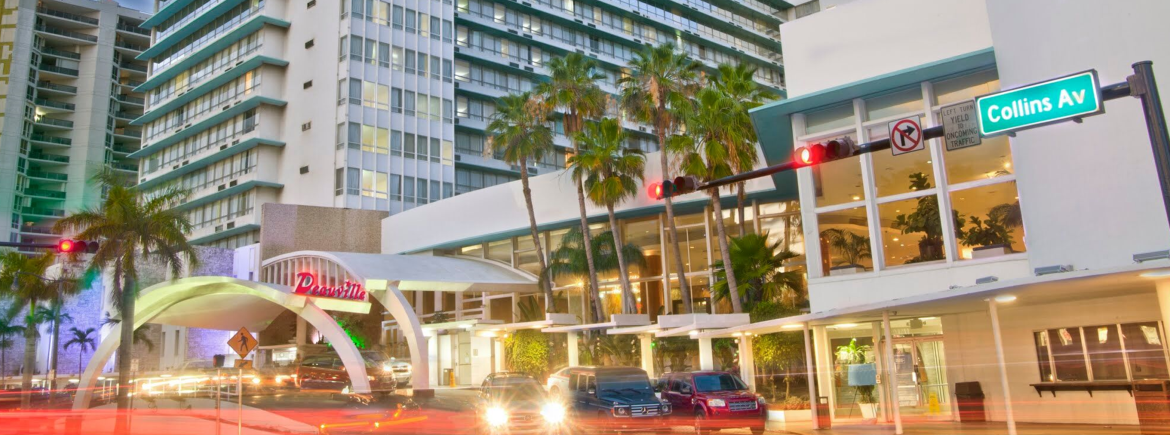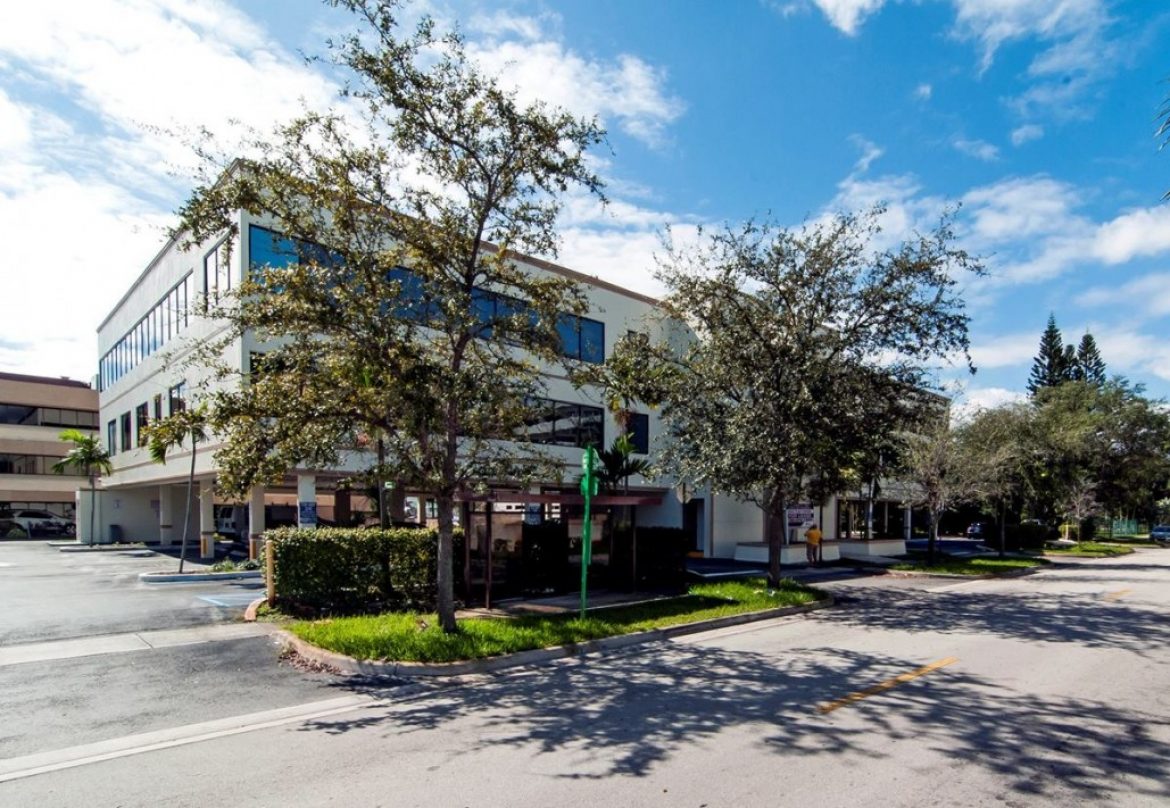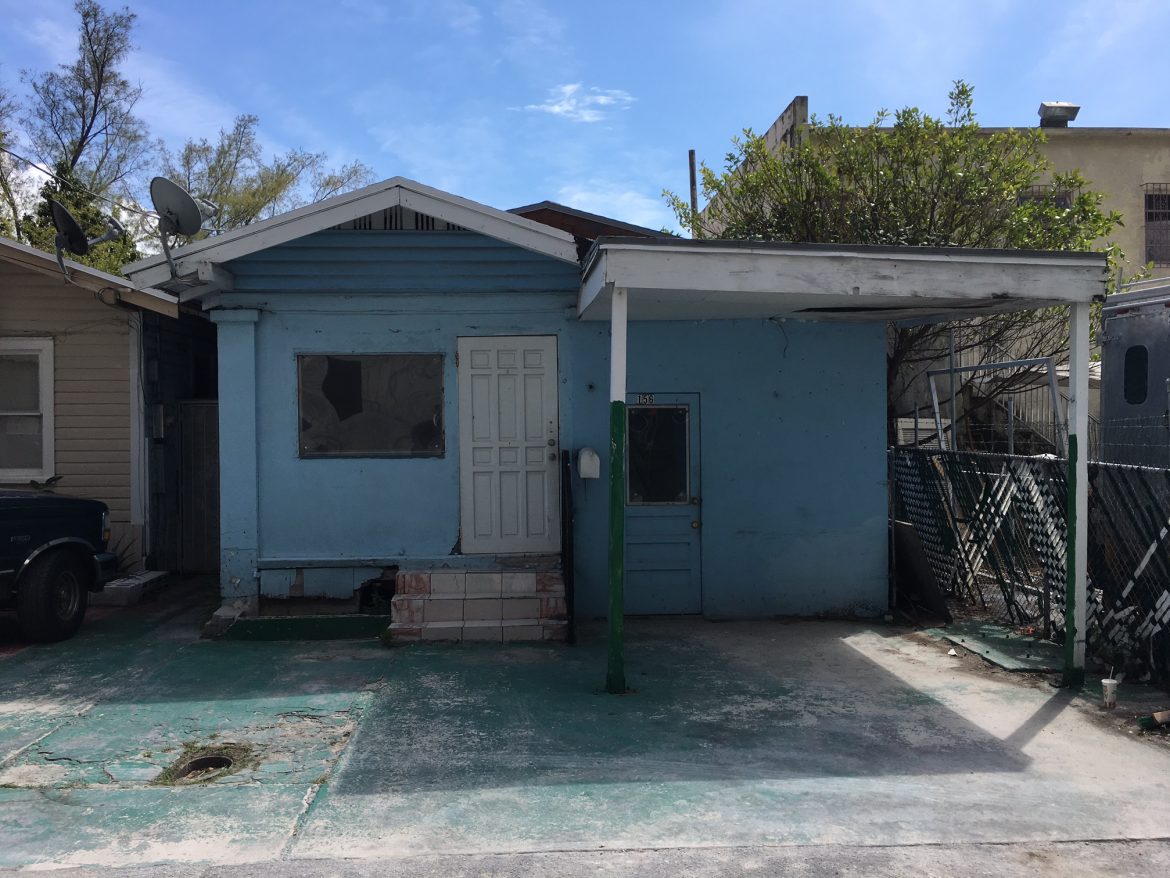Tens of thousands of people passed through the turnstiles into Hard Rock Stadium for Super Bowl LIV, taking part in the spectacle and competition. And when it ended, nearly all of them bypassed the neighborhood entirely on their way out.
While the stadium’s privately-funded, $500 million renovation boasts an open-air canopy along with other impressive additions, the surrounding city of Miami Gardens stands in sharp contrast.
The city has so far failed to attract the wide-scale investment that some sports stadiums in other cities have brought, and has not seen a blossoming of new residential properties outside the stadium.
Hard Rock Stadium owner — and Related Companies’ founder and chairman — Stephen Ross began the massive renovations of the venue in 2015, which brought the Super Bowl back to South Florida after a decade of absence. In addition, the money that Ross invested in the stadium — he also owns the Miami Dolphins — led to the Miami Open tennis tournament there in April and potentially, a Formula 1 race.
Some real estate developers who have built or proposed projects in Miami Gardens believe the renovations may bring about new interest in the city as a whole. The city, incorporated in 2003, is a historic African-American community with a population of about 110,000. It largely consists of older residential properties and commercial and industrial properties. In 2017, the household median income was $41,000 — below the county’s average of $46,388.
“The stadium is starting to be an asset. It was just a football stadium, but now… you are seeing an active asset, you are drawing people,” said Barron Channer, the CEO of Woodwater Investments, a Miami-based real estate investment firm. He previously proposed building a mixed-use project near the stadium.
Some developments are already in the works.
Los Angeles-based Latigo Group recently broke ground on a 259-unit apartment project at 19279 Northwest 27th Avenue in Miami Gardens. Rents will range from $1,700 to $2,300 per month, and the project is one of the first new market rate apartment developments in the city. It’s part of a bigger mixed-use project that will include a 37,000-square-foot building on a 4.63-acre parcel that will be leased to 24 Hour Fitness.
Jonathan Roth of Miami-based 3650 REIT, which provided a $50 million construction loan for the project, said Miami Gardens could become an attractive place to build housing at reasonably priced rents, since land prices are cheaper.
“What is happening nationally, you have a lot of development, but it is all Class A going up. By going into Miami Gardens you are going to pay slightly less for the land,” Roth said.
Sitting right off the Florida Turnpike and I-95 and in between downtown Miami and Fort Lauderdale, Miami Gardens has become a hub for logistics and warehouses, the less sexy part of real estate.
In recent years, institutional industrial investors have been snapping up properties in the area. In October, private equity giant Blackstone acquired two industrial properties in Miami Gardens for $13.6 million at 5120 Northwest 165th Street. And in July, Longpoint Realty Partners bought an industrial park in Miami Gardens from Prologis for $25 million.
In the northeast Miami-Dade County submarket, which includes Miami Gardens, more than 197,000 square feet of industrial space was under construction at the end of 2019, according to a report from Avison Young. The net absorption was 1.1 million square feet, the most of any submarket in the county.
Yet, the question remains whether the city will pivot from attracting industrial development to more residential projects.
Some real estate experts are betting on it, in part due to the rising cost of land in other parts of South Florida, and a lack of developable land to build new projects. The city could also become an alternative for renters on a budget, who would otherwise move further south or west in Miami-Dade County.
Colliers International South Florida’s Gerard Yetming and Mitash Kripalani are listing two parcels of land in Miami Gardens at 1255 Northwest 210th Street, totaling 82.5 acres, which allow for a maximum of 50 residential units per acre. Yetming said he is getting inquiries from developers who are looking to build workforce residential development, and that developer interest is growing in Miami Gardens.
“The level has increased over the past couple of years,” Yetming said. “A few years ago, developers were more interested in downtown and an urban type of environment.”
With new investment also comes the risk of gentrification and displacement of existing residents, something communities in places like Miami’s Little Haiti are trying to combat amid projects like the Magic City Innovation District.
“Miami Gardens is and has been heavily defined by the presence of black residents,” said Channer of Woodwater Investments. “If this is not reflected in who is courted to, and actually investing at all levels, then economic development efforts would have failed their ultimate test.”
Source: The Real Deal




